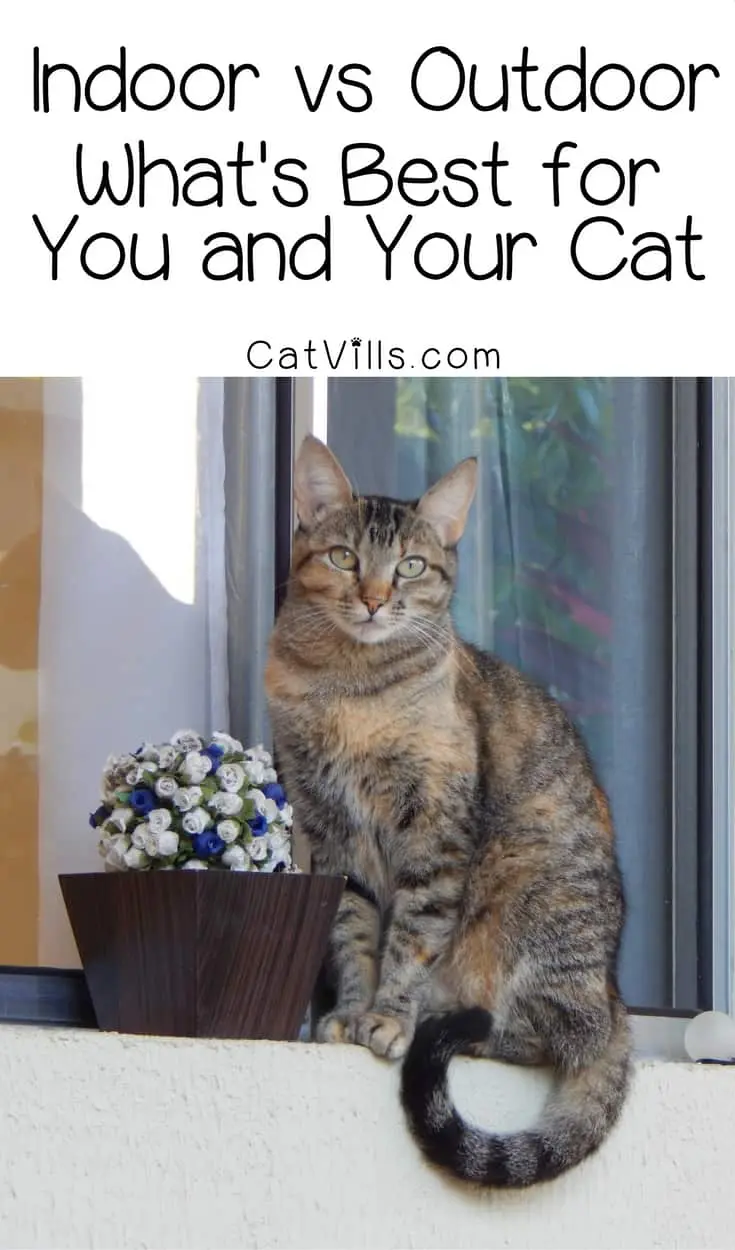Last Updated: 2 months ago
Indoor cats vs. outdoor cats—it’s quite the debate, isn’t it? If you’re a new cat owner, you might be thinking, “Which should I choose?”
Do I keep Kitty inside for his whole life? Do I let him be a free-range kitty and go outside when he wants?
Like everything, there are pros and cons to both. Let’s take a look at both of them!
Indoor Cats Vs Outdoor Cats: Which is Better?
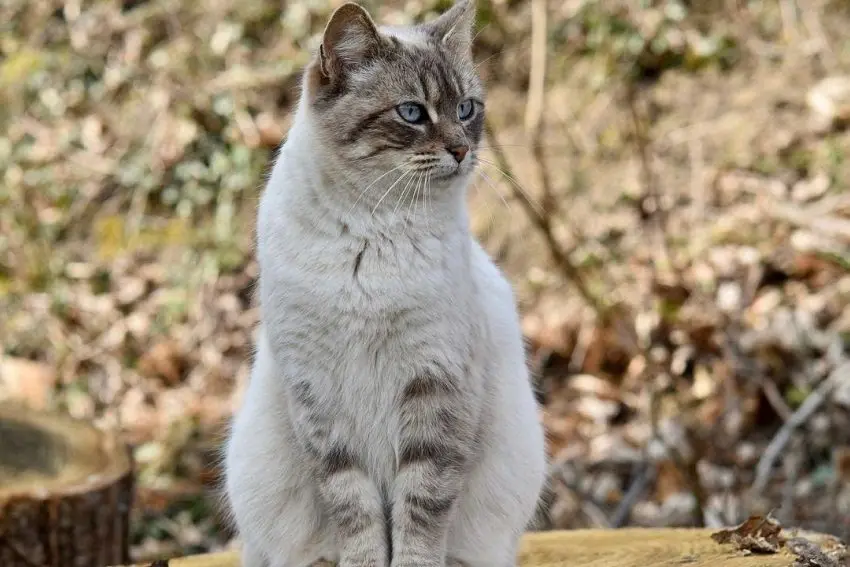
Embarking on the decision of whether to keep your feline friend indoors or allow them to go on outdoor adventures is a crucial aspect of responsible cat ownership.
Join us in exploring the dynamic debate of indoor cats vs. outdoor cats, delving into the considerations, benefits, and potential challenges associated with each lifestyle choice.
Let’s navigate the choices to ensure the well-being and happiness of our beloved furry companions.
Indoor Cats
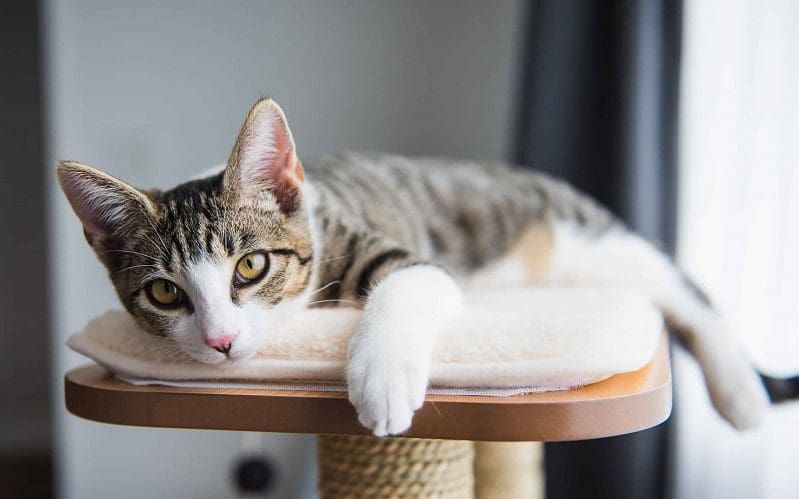
The biggest pro for having indoor cats is health-related.
They generally live longer lives because they aren’t exposed to as many diseases as outdoor cats are.
They also aren’t likely to run into predators unless a bear comes trampling into your house! Seriously, though, how often does that happen?
Advantages: Safety and Health
Indoor cats enjoy a significantly lower risk of accidents, exposure to diseases, and encounters with predators.
By keeping them within the confines of a controlled environment, owners can protect their cats from traffic hazards, contagious illnesses, and potential injuries, ensuring a healthier and longer life.
Advantages: Environmental Conservation
Keeping cats indoors helps preserve local ecosystems by preventing them from hunting and impacting wildlife.
Outdoor cats, known for their hunting instincts, can pose a threat to birds and small animals.
Opting for an indoor lifestyle promotes responsible pet ownership and contributes to the ecological balance of the surrounding environment.
Disadvantages: Separation Anxiety
Many times, indoor cats form a bond and become dependent on their owners.
This means that when you are away from home, your cat can develop separation anxiety, much like a child can when their parent leaves for any length of time.
Indoor cats should not be left alone for any length of time without some form of human interaction.
Disadvantages: Exercise Needs
Keeping your indoor cat mentally and physically stimulated is important.
Since indoor cats don’t get the same exercise that outdoor cats do, they can sometimes get a bit lazy.
One way to accomplish this is with interactive cat toys, like wands, mice, and ball toys. Another way is with cat towers that they can climb and jump on.
Outdoor Cats
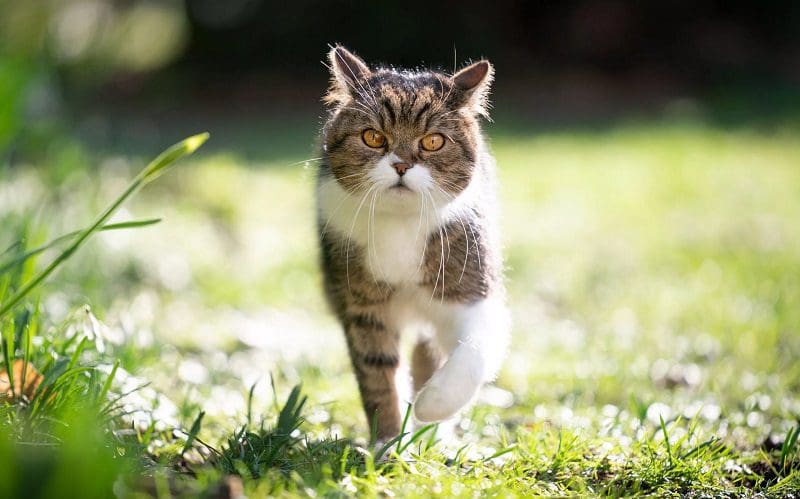
It’s hard to find benefits to letting your cat be an outdoor kitty.
If your cat goes to the bathroom outside, you won’t have to clean the litter box as often. The stakes are much higher on the con side, too.
Advantages: Natural Stimulation and Exercise
Outdoor cats benefit from a more enriched environment that offers natural stimuli, including fresh air, sunlight, and various textures.
Exploring the outdoors provides mental stimulation, alleviates boredom, and allows for physical exercise, contributing to a cat’s overall well-being and happiness.
Advantages: Behavioral Fulfillment
Outdoor cats can exhibit more natural behaviors, such as climbing, hunting, and exploring.
This freedom satisfies their instincts and may reduce stress-related behaviors seen in some indoor cats.
Access to the outdoors can enhance a cat’s quality of life by allowing them to engage in activities that mirror their wild ancestors’ habits.
Disadvantages: Health Concerns
When it comes to outdoor cats, there are two major health concerns: disease and parasites.
There are millions of feral cats in the United States, many carrying some type of disease that can be passed on from cat to cat, including Feline Distemper, Feline Leukemia, Feline AIDS, and Upper Respiratory Infections.
Parasites like ticks, fleas, worms, and ear mites are not fatal to cats, but they can still be a nuisance. Parasites can attach to your cat, who can then transport them inside your home.
Disadvantages: Safety Concerns
There are several safety concerns when it comes to outdoor cats. These concerns include automobiles, wild animals, and toxins.
Whether you live on a busy street or not, some drivers don’t watch out for animals crossing the road or simply don’t see them until it is too late.
While cats are great at hunting, they are often hunted by other animals like coyotes, foxes, and raccoons.
Injuries that cats sustain from wild animal attacks can be serious and even fatal. When it comes to toxins, antifreeze is the most common.
Antifreeze has a smell and a taste that cats are attracted to. However, when a cat ingests antifreeze, it is often fatal since it is poisonous to cats.
Which One is The Best?
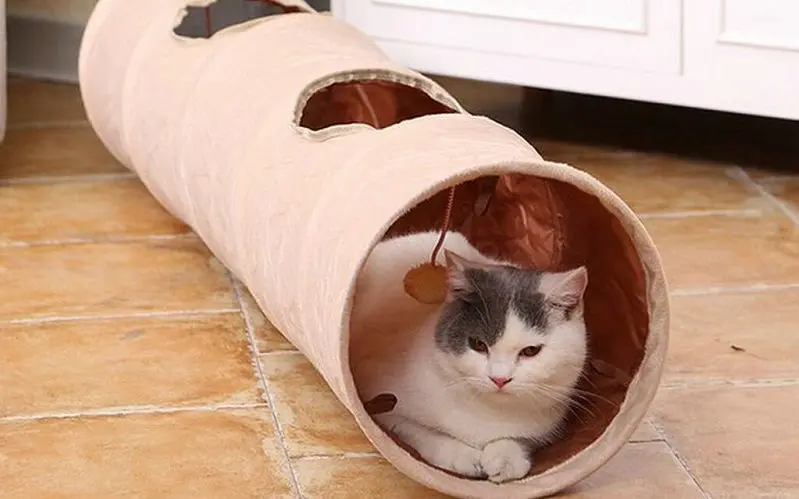
Obviously, having indoor cats is the better choice for your kitty’s health and well-being.
Still, since some cats simply refuse to stay in the house (going as far as peeing on furniture when you try to keep them in), there are things you can do to keep your outdoor kitties safe.
The most important thing is keeping them up-to-date on vaccinations and talking to your vet about any extra vaccines they may need.
You’ll also want to make sure your garden and yard are cat-safe and free of any toxic plants.
A tall privacy fence may help keep your kitty in the yard, but as you know, cats can climb. Still, your kitty may decide he’s content to just stay in his own fenced-in paradise.
Do you have strictly indoor cats, outdoor cats, or a mix of both? Tell us about your experiences below!
Resources:
